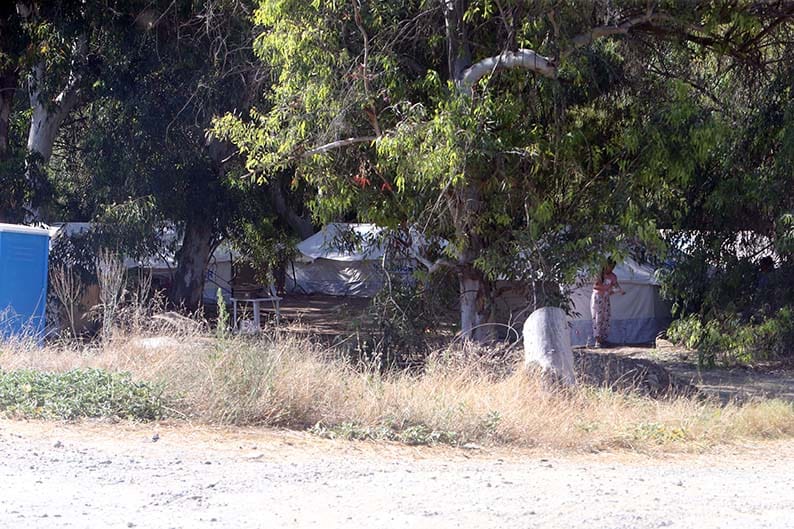The Cyprus government is facing mounting criticism for leaving migrants stranded in the UN buffer zone for close to a week. Initially reported to be 13, the number of migrants has now more than doubled to 27. These individuals, including women, children, and unaccompanied minors, hail from Afghanistan, Iran, Sudan, and Cameroon.
Legal and Humanitarian Concerns
Sources close to the matter told Cyprus Mail that the Republic of Cyprus’ denial of entry violates national, EU, and international law. “The Republic of Cyprus doesn’t have a leg to stand on, as they are asylum seekers,” said a UN source. According to the information at hand, all 27 individuals have reported themselves as asylum seekers.
The government had previously stated that these migrants would not be allowed into state-controlled areas after crossing from the north due to the Green Line regulation. However, the UN source emphasized that this regulation does not “override any asylum obligations.”
As a heatwave hit the country and a yellow weather warning was issued, these individuals remained stuck in tents in the buffer zone. Some even required hospital treatment, necessitating their transfer to a state hospital before being returned to the buffer zone.
Government’s Stance and Potential Consequences
The government has remained silent on the matter, with a source from the interior ministry stating that they are not involved since the migrants are in the buffer zone. When the incident emerged last week, the government had said that crossings of migrants from the north violate the Green Line regulation and that Cyprus was not taking asylum applications.
A few months ago, Cyprus decided it would no longer process asylum applications from Syrian migrants for 21 months, instead transferring them to Pournara or Kophinou reception centres. However, this measure was introduced only for Syrian migrants and not for all countries from which migrants come to apply for asylum.
This year has seen an increased flow of migrants from the north via the buffer zone in recent weeks, despite the government lauding a drop in irregular migration on this route over the last year. The Republic of Cyprus has stepped up its patrols along the Green Line. The reception centre in Pournara, once overflowing with migrants, now reportedly has minimal numbers due to this curb in migration.
UNHCR’s Position
On Sunday, Katja Johanna Saha, head of the UNHCR office in Cyprus, warned that refusing to refer asylum seekers stranded in the buffer zone to national asylum procedures risks a chain of refoulement to their countries of origin if they return to the occupied northern part of Cyprus. This is due to the absence of an asylum system there, which often leads to the criminalisation of asylum seekers for irregular crossing of the UN buffer zone and the issuance of deportation orders against them.
Saha added that access to asylum procedures and decent living conditions should always be guaranteed in accordance with the principle of non-refoulement and the right to apply for asylum in accordance with international, national, and EU law.






